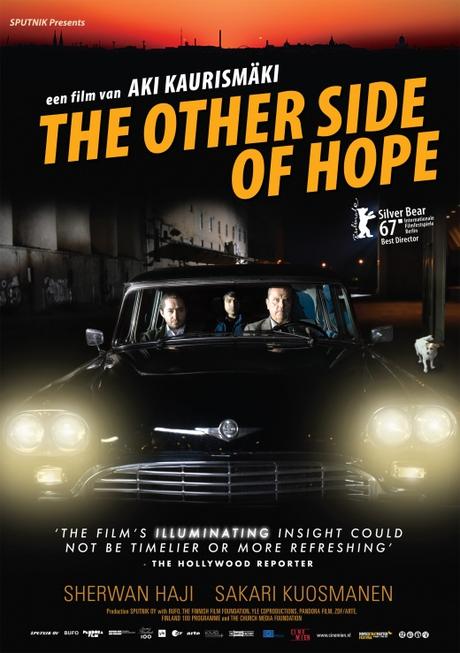
"An artist's duty, as far as I'm concerned, is to reflect the times." This famous Nina Simone quote was uttered in reference to the mid-20th century civil rights movement but it remains equally relevant today. And as one of the most powerful and popular artforms, cinema has always been a champion of this belief. With the ongoing refugee crisis, it's no surprise then that a new wave of films about the immigrant experience has been flooding theaters. From non-fiction to traditional dramas, this urgent human rights issue has become an increasingly important topic for filmmakers. Few of them however, capture the refugee experience with the same level of sharp wit and purposeful artistry as Aki Kaurismaki with his latest - and possibly last - film "The Other Side of Hope".
This tale of unlikely friendship between two men is set in modern day Helsinki. One is an elderly local named Wikström (Sakari Kuosmanen), a former salesman who has just left his wife. After winning big on a poker tour, Wikström has his sights set on a new career as a restaurant owner. Meanwhile, a young refugee named Khaled also hopes to start fresh, seeking asylum in Finland after an arduous journey from Syria. Both men are somewhat lost in their new worlds however, but when their paths collide, they instantly strike up a mutually beneficial relationship.
Like a lost film from the New German Cinema movement, "The Other Side of Hope" gives you a retro feel with its cinematography (obviously shot on film), wry sense of humor and strong characters. Indeed, the relationship between Wikström and Khaled is particularly reminiscent of Rainer Werner Fassbinder's "Ali: Fear Eats the Soul". There's a heartwarming simplicity to their friendship that poignantly contrasts the unnecessary bureaucracy that Khaled faces in his asylum appeal.
This juxtaposition of individual humanity vs collective intolerance is handled brilliantly by Kaurismaki. He blends a gently comic tone with the harsh reality of our modern times with equally unsentimental matter-of-factness. The brightly colored walls and humorously misguided attempts at cultural appropriation may seem to affirm the illusion of a welcoming society. But Kaurismaki is soberingly blunt in exposing the hypocrisy of European liberalism, where the possibility of racist violence lurks around every corner.
In this regard, Sherwan Haji is amazingly effective as Khaled. There's an intensity in his eyes that feels almost accusatory towards the viewer, as if we are complicit in the harrowing ordeal that brought him to Finland. We are therefore invested in his tumultuous journey, through which Kaurismaki shows the other side of freedom, home and hope.
